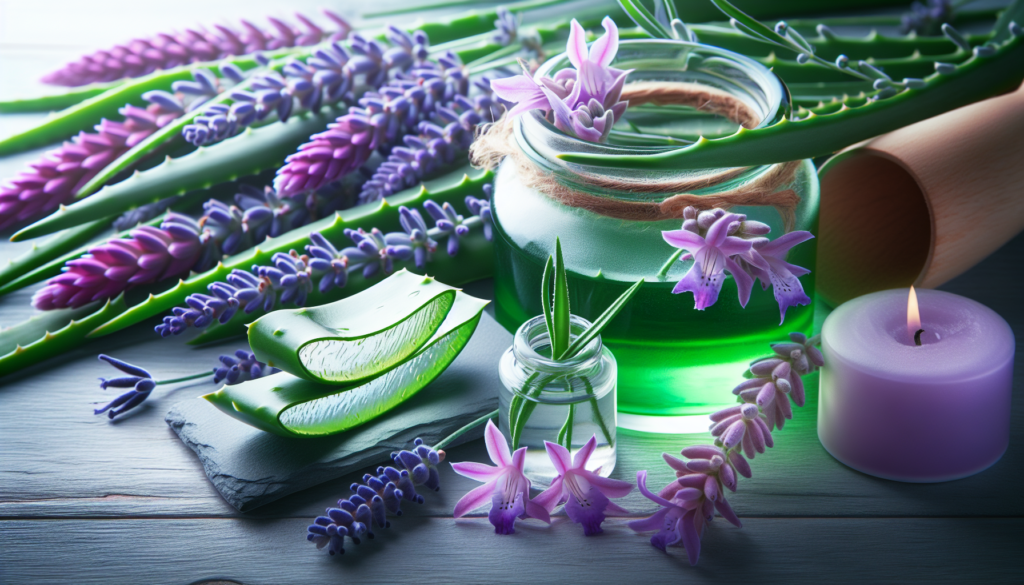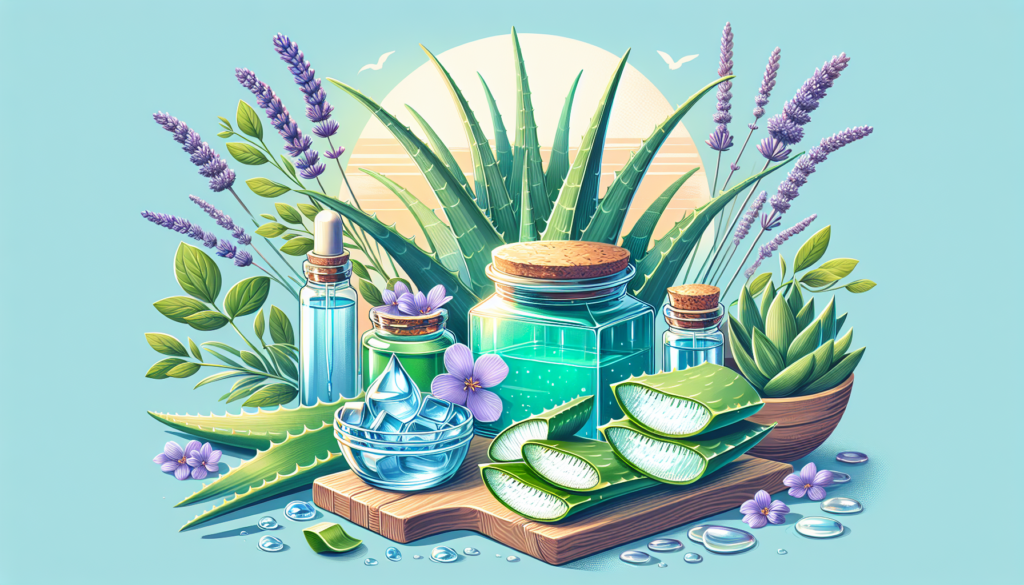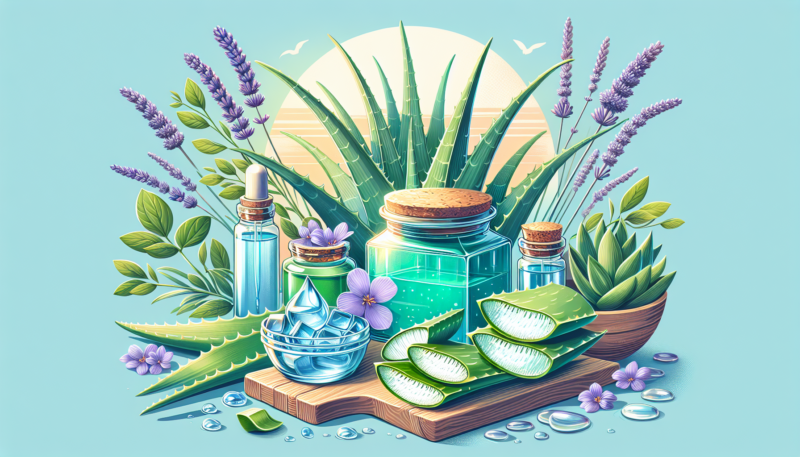Are you tired of dealing with the discomfort and embarrassment of yeast infections? Look no further – “The Ultimate Guide to Natural Cures for Yeast Infections” has arrived to provide you with all the information you need to find relief. Say goodbye to over-the-counter medications and hello to safe, effective natural remedies. From soothing herbs to probiotics and lifestyle changes, this guide will help you navigate the world of natural cures for yeast infections and finally achieve lasting comfort and peace of mind.
Understanding Yeast Infections
Yeast infections, also known as candidiasis, are common fungal infections that can affect various parts of the body, including the mouth, skin, and genitals. The most common type of yeast infection is vaginal yeast infection, which affects women. However, men can also develop yeast infections, typically in the form of penile yeast infection. These infections occur when there is an overgrowth of Candida, a type of yeast that is naturally present in our bodies. While small amounts of Candida are normal, an imbalance can lead to an infection.
Causes of Yeast Infections
Yeast infections can occur due to various factors, including hormonal changes, weakened immune system, uncontrolled diabetes, pregnancy, antibiotic use, and poor personal hygiene. Hormonal changes, such as those that occur during pregnancy or menopause, can disrupt the natural balance of bacteria and yeast in the vaginal area, making it more susceptible to infection. Antibiotic use can also kill off the good bacteria in our bodies, allowing yeast to multiply and cause an infection.

Symptoms of Yeast Infections
The symptoms of yeast infections can vary depending on the affected area. In the case of vaginal yeast infections, common symptoms include itching, swelling, redness, and a thick, white discharge that resembles cottage cheese. Women may also experience pain or discomfort during sexual intercourse or while urinating. In men, symptoms of yeast infections may include redness, itching, and a rash on the penis, as well as discomfort or pain during urination or sexual intercourse. Other types of yeast infections, such as oral thrush or skin infections, may manifest as white patches in the mouth or on the skin, respectively.
Prevention Tips
Taking preventive measures can help reduce the risk of developing yeast infections. Maintaining good hygiene is crucial, especially in the genital area. It is important to wash the area with mild soap and water regularly and to dry it thoroughly afterward. Avoid using scented products, as they can disrupt the natural balance of bacteria and yeast. Wearing loose-fitting, breathable cotton underwear can also help prevent yeast infections by reducing moisture in the genital area. It is important to avoid tight-fitting clothes, as they can create a warm and moist environment that encourages yeast growth.

Dietary Changes for Yeast Infections
Certain dietary changes can also be beneficial in preventing and managing yeast infections. Reducing sugar intake is essential because yeast feeds on sugar to grow. Limiting the consumption of sugary foods and beverages, including processed foods, sweets, and sugary drinks, can help maintain a healthy balance of yeast in the body. Increasing probiotic consumption is another dietary change that can promote a healthy balance of bacteria, which helps prevent overgrowth of yeast. Probiotic-rich foods, such as yogurt, kefir, sauerkraut, and kimchi, contain beneficial bacteria that can help keep yeast in check. Incorporating anti-fungal foods, such as garlic, onion, coconut oil, and oregano, can also be beneficial in preventing and fighting yeast infections.
Herbal Remedies
Herbal remedies can provide natural relief from yeast infections. Tea tree oil, with its antifungal properties, is commonly used to treat yeast infections. Diluted tea tree oil can be applied topically to the affected area to help alleviate symptoms. Garlic is another natural remedy that has antifungal properties. Consuming raw garlic cloves or applying garlic paste externally can help fight yeast infections. Oregano oil, known for its antimicrobial and antifungal properties, can be used topically or taken orally to combat yeast infections.
Essential Oils for Yeast Infections
In addition to herbal remedies, essential oils can also be effective in treating yeast infections. Lavender oil, with its soothing properties, can help relieve itching and inflammation caused by yeast infections. Tea tree oil, with its antifungal and antimicrobial properties, is a popular choice for treating yeast infections. Diluted tea tree oil can be applied topically to the affected area. Similarly, oregano oil, with its potent antifungal properties, can be used to combat yeast infections. It is important to dilute essential oils before use and perform a patch test to check for any adverse reactions.
Home Remedies for Yeast Infections
There are several home remedies that can provide relief from yeast infections. Yogurt, when applied topically to the affected area, can help restore the natural balance of bacteria and yeast. It is important to choose plain, unsweetened yogurt that contains live cultures. Apple cider vinegar, with its natural acidic properties, can help restore the pH balance in the body and inhibit the growth of yeast. Diluted apple cider vinegar can be used as a topical solution or added to bathwater for relief. Coconut oil, with its antimicrobial properties, can be applied topically to soothe itching and irritation caused by yeast infections.
Over-the-Counter Remedies
Over-the-counter remedies can also be used to treat yeast infections. Antifungal creams, such as miconazole or clotrimazole, can be applied topically to the affected area for relief of symptoms. Vaginal suppositories containing antifungal medication are also available and can be inserted into the vagina to treat yeast infections. It is important to carefully follow the instructions provided with these products and to consult a healthcare professional if symptoms persist or worsen.
Lifestyle Changes
Certain lifestyle changes can help prevent yeast infections and promote overall vaginal health. Wearing breathable fabrics, such as cotton underwear, can help reduce moisture and prevent yeast overgrowth. Avoiding douching, as it can disrupt the natural balance of bacteria and yeast in the vagina, is important. It is also recommended to limit the use of antibiotics, as they can disrupt the natural balance of bacteria in the body and increase the risk of yeast infections.
Natural Cure for Male Yeast Infections
While yeast infections are more common in women, men can also develop them. Male yeast infections typically affect the genital area, causing symptoms such as itching, redness, and a rash. Tea tree oil, with its antifungal properties, can be used topically to treat yeast infections in men. Diluted tea tree oil can be applied to the affected area for relief. Similar dietary changes, such as reducing sugar intake and increasing probiotic consumption, can also be beneficial for men with yeast infections.
When to Seek Medical Attention
While most yeast infections can be managed with home remedies and over-the-counter treatments, there are certain instances where medical attention is necessary. If yeast infections persist or recur despite treatment, it is important to seek medical advice. Severe symptoms, such as intense itching, swelling, or pain, should also prompt a visit to a healthcare professional. Additionally, if there is a concern for underlying medical conditions, such as diabetes or a weakened immune system, it is important to consult a healthcare professional for appropriate diagnosis and treatment.
By understanding the causes, symptoms, and prevention tips for yeast infections, as well as exploring natural remedies and over-the-counter treatments, you can effectively manage and prevent yeast infections. It is important to listen to your body, practice good hygiene, make dietary changes, and consult a healthcare professional when necessary to ensure optimal vaginal health. With the right knowledge and care, you can overcome yeast infections and maintain a healthy and balanced body.
